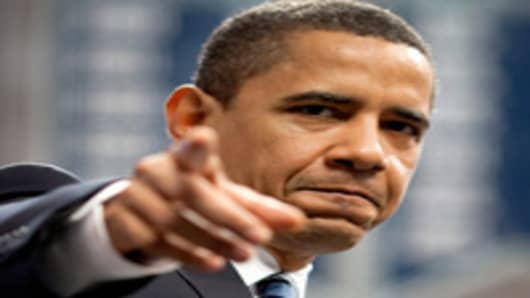All this week, the NBC news family is focusing attention on "A Nation Divided," and ahead of President Obama's Silicon Valley visit on Wednesday, I was asked to look at the H1-B visa issue again, especially as it relates to the tech community and a new hiring wave.
H1-B became controversial last year as the nation continued to descend into the recession abyss, taking with it millions of jobs in the process.
It seemed there was a new and significant layoff announcement every week as tens of thousands of tech workers lost their jobs, even as some of these companies continued to bring in workers from out of the country.
There was a call by Sen. Charles Grassley (R-Iowa) to make sure American companies receiving any TARP funding should be compelled to lay off foreign workers first before their American counterparts. Jingoism seemed to be increasing. Other public officials began to beat the drum that in these trying economic times, American companies needed to hire Americans first, before looking overseas for talent.
Us versus them.
I understood the argument and why it was so politically sweet. But practically, at least here in the Silicon Valley, such a strategy would never work. Here, competition breeds success, and success breeds a strong America. American companies, especially tech companies, need to be able to hire who they want, from where they want, as long as they are the best people available for the job opening. Sometimes that's an American; other times it might be an Indian, or Chinese, or Korean, or Vietnamese, or even French or British. Handcuffing HR managers to give their nod to American workers when H1-B visa holders might be better qualified would be a shame.
All of this comes at a time when Silicon Valley companies are indeed hiring again: Intel, 1,000 to 2,000 new workers expected; Cisco, 2,000 to 3,000; Hewlett-Packard, Google, Apple, IBM. They are all in hiring mode. Tesla, the electric car maker, is re-opening the now-shuttered NUMMI auto plant in Fremont, CA, which General Motors and Toyota just closed and hopes to hire as many as 10,000 new employees over the next decade. Solyndra, playing host to President Obama on Wednesday, will hire at least 1,000 new workers, and its new manufacturing plant under construction created 3,000 jobs.
I don't know how many of those job openings will be filled by H1-B visa holders, but if past trends are indicative of what to expect now, the numbers could be significant. As an example, last year, Microsoft hired 1,300 H1-B visa holders; Intel around 700.


